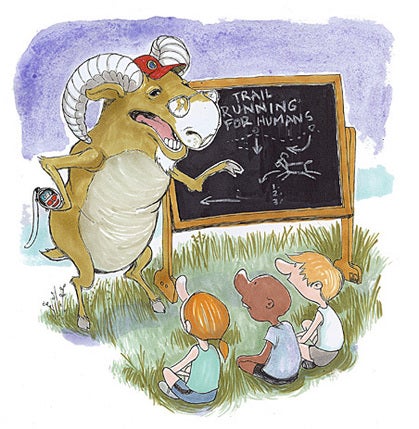Carb Overdose

Ask the Coach
If consuming 250 to 280 carb calories per hour is ideal for endurance, could you run faster and better with even more? …
Illustration by Jeremy Collins
If consuming 250 to 280 carb calories per hour is ideal for endurance, could you run faster and better with even more?
—Dana Horne-Dalton, Laporte, CO
Based on metabolism research, you should get 100 to 300 calories per hour while training. That rather wide variation stems not only from personal differences, but also from intensity and body size: a wisp wouldn’t need as much as a mammoth. Even then, figuring our your basic needs for best performance comes down to trial-and-error.
Now, about the more-is-better issue: Nancy Clark, registered dietician, sports-nutrition authority and author of Nancy Clark’s Sports Nutrition Guidebook (4th Edition, 2008), warns the more you put down the hatch, the harder your system has to work to move it along.
“You don’t want to eat so much that the food doesn’t empty from the stomach,” she says. A belly with more in it results in a heavy feeling and won’t lead to better running. Just enough is best.
Also heed what you eat, adds Clark. For runs of a few hours or longer, getting a small amount of protein—maybe five to 10 percent of calories consumed—will help muscles hang on to more glycogen and stay stronger. But, again, more is not better: “Protein does not refuel the muscles,” she says. “It’s satiating, and it’ll keep you from feeling hungry, but it’s not a good source of energy.”